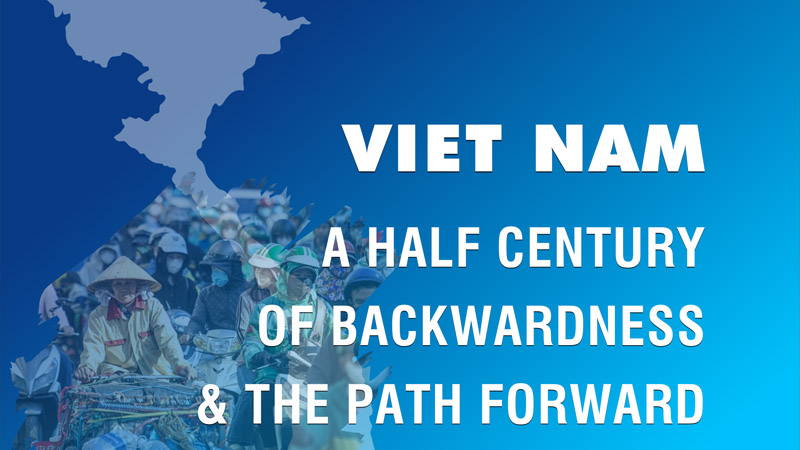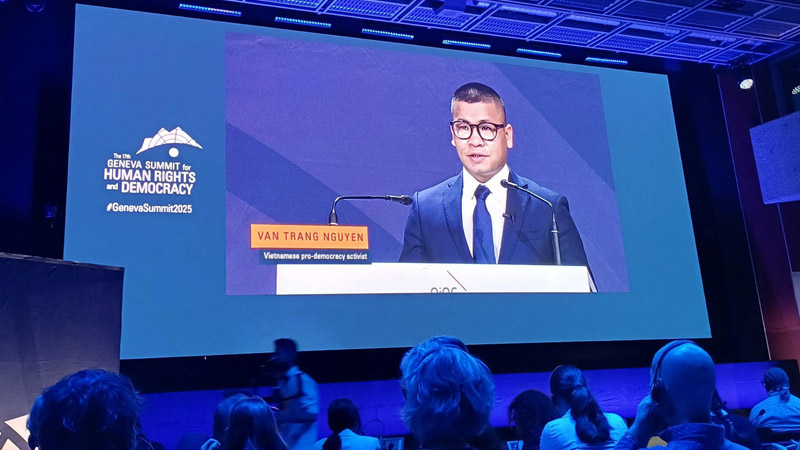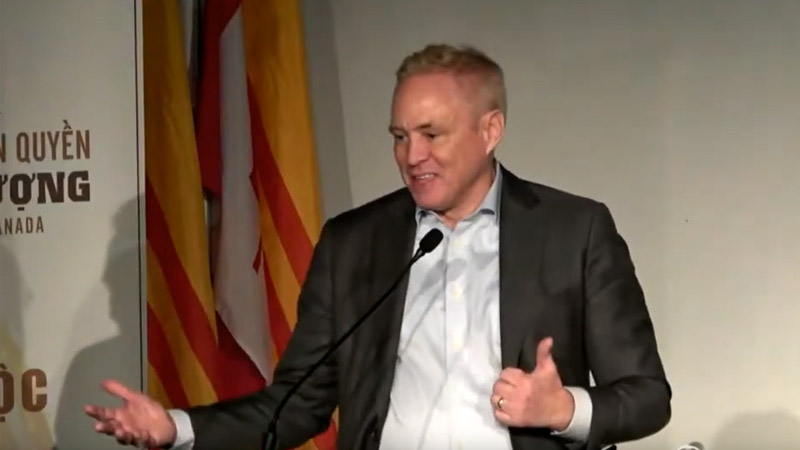February 11, 2010
Two pioneering Web sites that stretched the limits of free expression in Vietnam say they have been hacked and shut down, just months after the communist government blocked the social networking site Facebook.
Both sites had been critical of Vietnam’s policies toward China, a subject of great sensitivity to the government, whose efforts to maintain good relations with its massive northern neighbor sometimes run afoul of nationalist sentiment.
But both sites were generally restrained in tone, and neither had called for an end to Vietnam’s single-party system.
The sites’ problems arose in the midst of Vietnam’s latest crackdown on dissent, which has seen 16 democracy activists jailed in just over three months.
The government has not responded to questions about the Web sites submitted earlier this week by The Associated Press.
But shortly after Vietnam began blocking Facebook in November, Foreign Ministry spokeswoman Nguyen Phuong Nga declared that Vietnam would take “appropriate action” against Web sites that it believes threaten national security. The government did not specifically acknowledge shutting down Facebook, but two Internet service providers said they had been ordered to block the site.
One of the recently closed sites, blogosin.org, was shut down earlier this week, according to its author, Huy Duc, a Ho Chi Minh City blogger who wrote under the pen name “Osin,” which, loosely translated, means “housekeeper.” He often campaigned against corruption and lampooned bureaucratic incompetence.
The second site, bauxitevietnam.info, was founded last year by three men who oppose the government’s plans to open a giant bauxite mine in Vietnam’s strategically sensitive Central Highlands.
The bauxite site’s manager, Nguyen Hue Chi, said he has been playing an online cat-and-mouse game with unknown hackers since December, when the site was first blocked. Last month, he moved it to a new Web address, but it was recently hacked again. It is now accessible at yet another address that Chi recently established.
Duc lost his job at the Saigon Tiep Thi newspaper last August after posting a piece on the Osin site that praised the fall of the Berlin Wall and criticized the former Soviet Union’s communist leaders.
From the time it opened last year until it was closed in December, the Bauxite site had drawn more than 17 million hits from readers concerned about the government’s mining plans.
Vietnam has hired a Chinese company to build the plant to process bauxite taken from the mines and hundreds of Chinese are reportedly working there.
Vietnam has some of the world’s largest reserves of bauxite, the primary ingredient in aluminum. The government has argued that the mine would bring economic benefits to the impoverished Central Highlands.
Opponents say the project would cause major environmental problems and have raised the specter of Chinese workers flooding into the strategically sensitive region. Among them is the legendary 98-year-old Gen. Vo Nguyen Giap, who expelled French and U.S. troops from Vietnam.
Giap’s photograph is prominently featured on the bauxite Web site. Suspicion of China runs deep in Vietnam, which has a long history of conflict with its northern neighbor.
The two countries fought a bloody border war in 1979 and they have ongoing disputes about two archipelagoes in the South China Sea, the Spratlys and the Paracels.
Like Osin, bloggers on the bauxite site have argued that the Vietnamese government has not taken a tough enough stand against China.
During an interview last summer, Chi said the founders established the site because the dispute over the bauxite mine had been largely ignored by Vietnam’s state-controlled media.
Chi, whose grandfather was friends with Vietnam’s revolutionary hero Ho Chi Minh, stressed that he wanted to work with the Communist Party, not replace it.
He expressed confidence that the government would gradually ease restrictions on expression.
“The right to independent thought and free expression is enshrined in the Vietnamese constitution,” Chi said.





